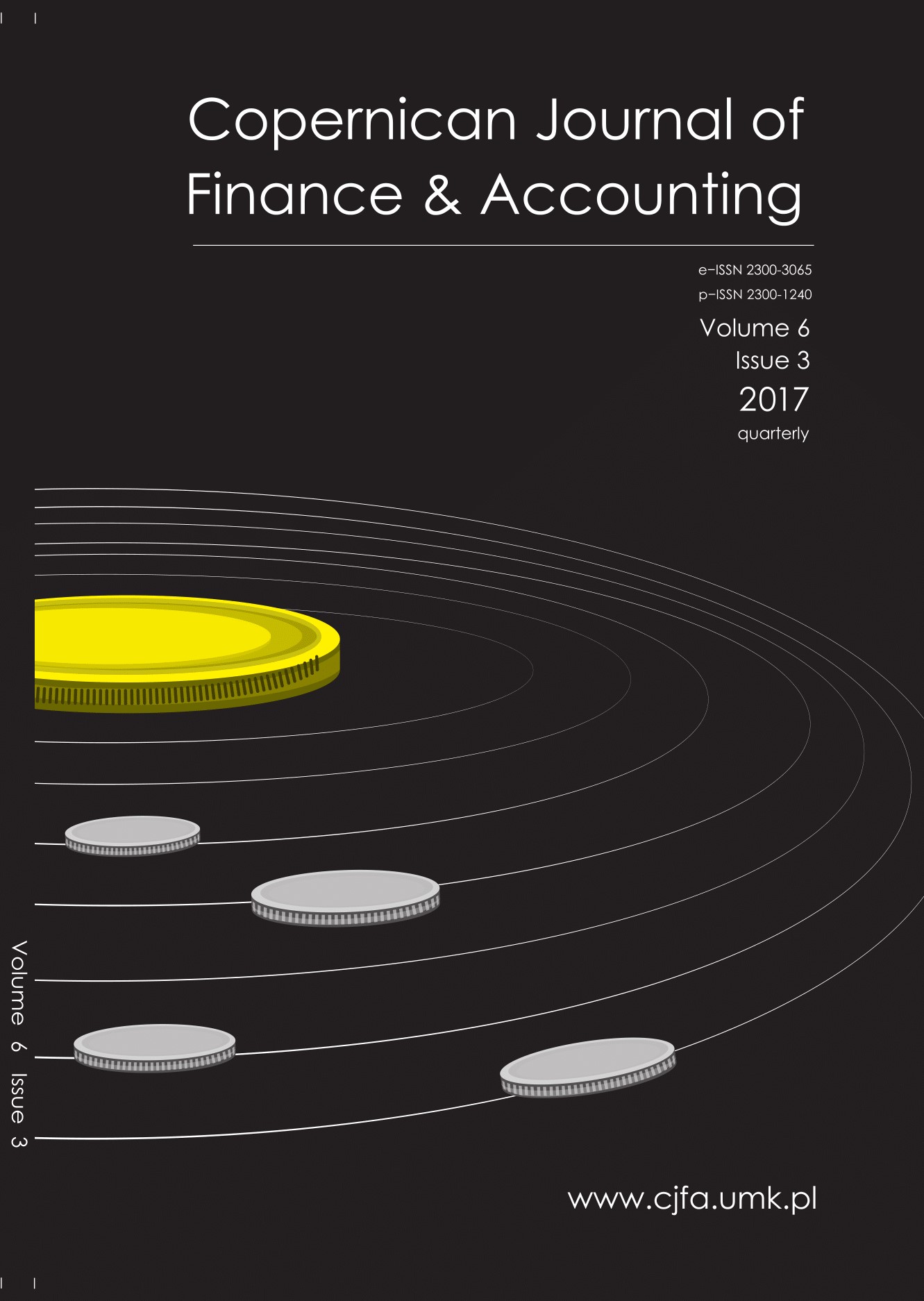LOW COST RETIREMENT SOLUTIONS BASED ON ROBO-ADVISORS AND EXCHANGE TRADED FUNDS
DOI:
https://doi.org/10.12775/CJFA.2017.018Keywords
robo advisors, ETF, retirementAbstract
This paper briefly analyzes American retirement system and bares its shortcomings. The post crisis economic reality, low savings rates and misguided policy changes, requires searches for new retirement solutions. Especially it’s worth to have a second look at costs of traditional retirement products. Analysis of mutual funds expense ratios and financial advisors fees proofs their significant impact on future retirement. New products based on ETFs and managed by robo advisors are the low cost alternative. The substance of this paper is cost comparison of traditional retirement products with innovative FinTech solutions. In a result of this analysis robo advisors and ETFs turned out to be definitely more cost effective, what makes investing more accessible and substantially increases future retirement.
References
Aubry, J., Crawford, C., & Munnell, A. (2015). Investment returns: Defined Benefit vs. Defined Contribution Plans, Center for Retirement Research Boston College.
Average Financial Advisor Fees & Costs 2017 Report, http://www.advisoryhq.com (accessed: 15.03.2017).
Bernstein, J., & Phyllis, A. (2002). Primer on Exchange-Traded Funds, Journal of Accountancy, Vol. 193, 38–41.
Brinson, G., & Siegel, L. (2015). After 70 Years of Fruitful Research, Why Is There Still a Retirement Crisis? CFA Institute.
Dapp, F. (2016). FinTech – Traditionelle Banken als digitale Plattformen und Teil eines Finanz-Ökosystems, Springer.
Dellva, W. (2001). Exchange-Traded Funds Not for Everyone, Journal of Financial Planning, Vol. 14, 110–124.
Erickson, J., & Madland, D. (2014). Fixing the drain on retirement savings, Center of American Progress.
France-Massey, T. (2016). The impact of robo advisors on institutional investment banking, Thinking Ahead, 27–31.
Gastineau, L. Gary (2001). Exchange-Traded Funds: An Introduction, Journal of Portfolio Management, Vol. 27.
Hill, J., Nadig, D., & Hougan, M. (2015). A Comprehensive Guide to Exchange-Traded Funds (ETFs), CFA Institute.
Kostovetsky, L. (2003). Index Mutual Funds and Exchange Traded Funds, Journal of Portfolio Management, Vol. 29, 80–92. http://doi.org/10.3905/jpm.2003.319897.
Nowak, K. (2016). Implementation of alternative index weighting to Warsaw Stock Exchange, Copernican Journal of Finance and Accounting, Vol 5, No 2, 166–179. http://dx.doi.org/10.12775/CJFA.2016.021.
Poterba, M., & Shoven J. (2002). Exchange Traded Funds: A New Investment Option for Taxable Investors, American Economic Review, Vol. 92, 422–427. http://doi.org/10.3386/w8781.
Robo-advisor - automation to enhance financial advisory, http://www.infosys.com (accessed: 12.03.2017).
Sironi, P. (2016). FinTech Innovation: From Robo-advisors to Goal-based Investing and Gamification, 2016.
Xia, Y. (2016). Debunking the myths behind the robo advisors, Thinking Ahead, 55–57.
http://www.etf.com (accessed: 15.03.2017).
http://www.etfdb.com (accessed: 15.03.2017).
http://www.statista.com (accessed: 15.03.2017).
http://us.pensiontracker.org (accessed: 15.03.2017).
Downloads
Published
How to Cite
Issue
Section
Stats
Number of views and downloads: 555
Number of citations: 0



